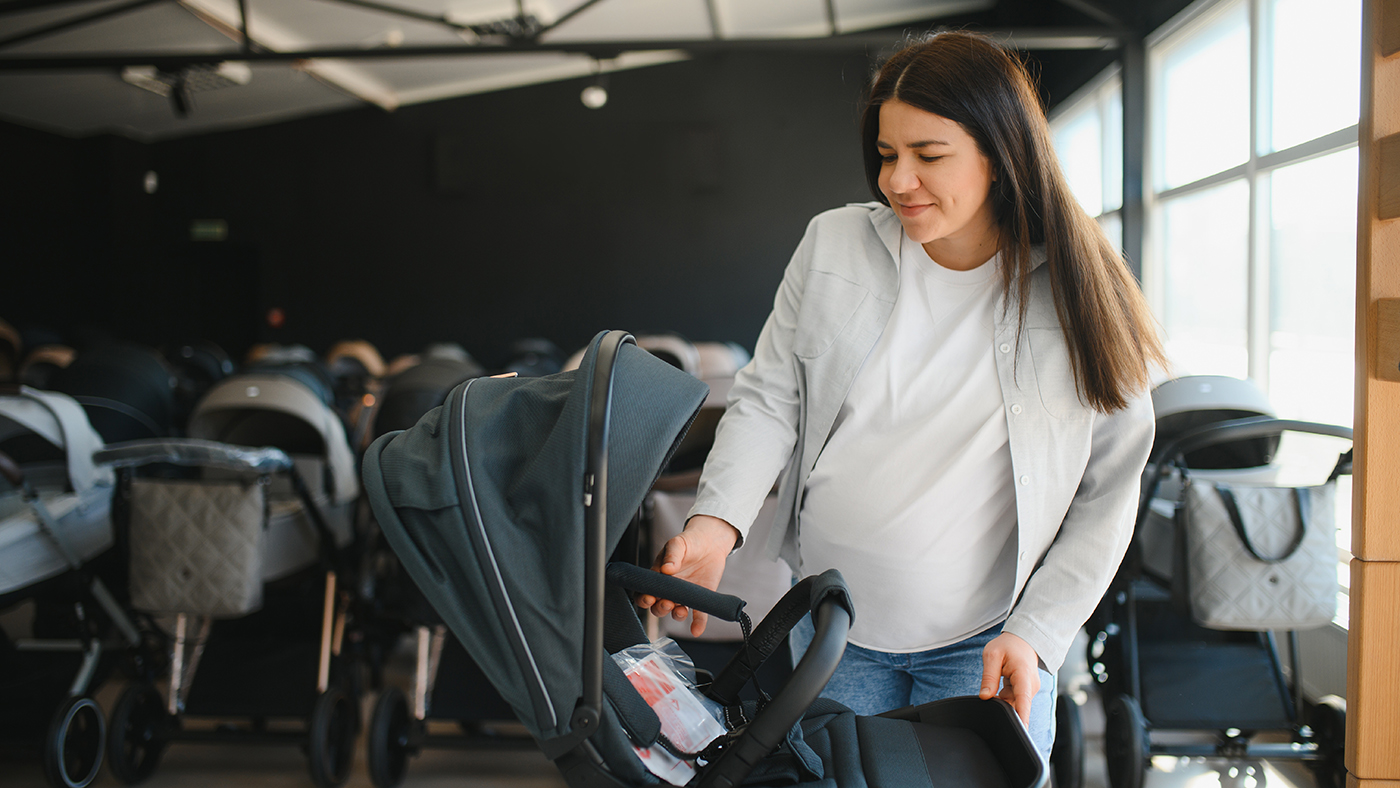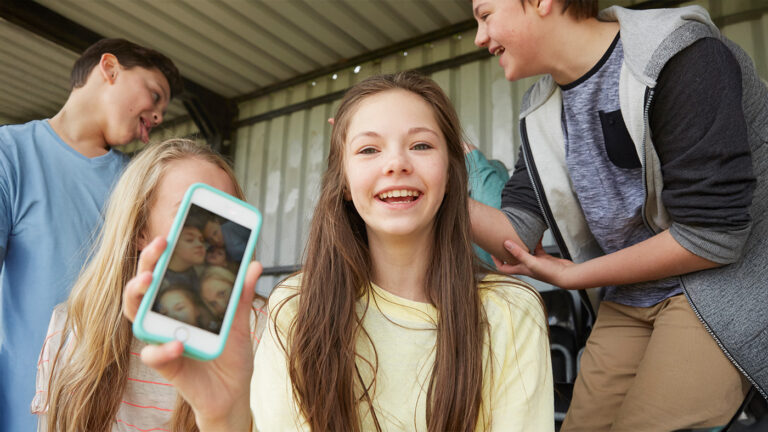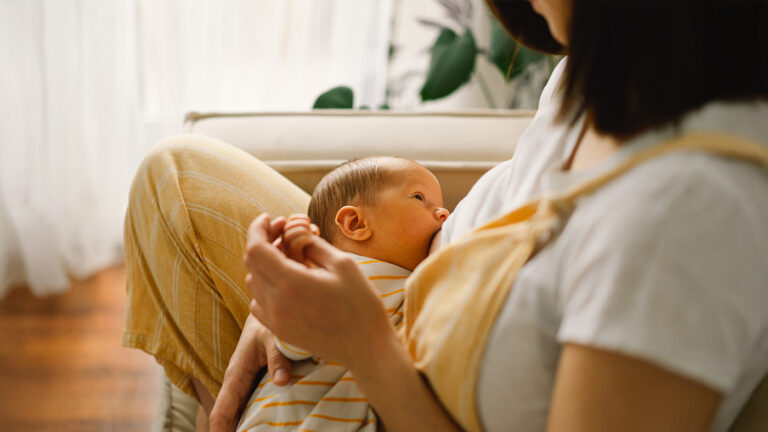Preparing for a newborn is one of the most exciting times in your life, but it can also be difficult to know where to start. In addition to building the crib and painting the nursery, there’s a long list of supplies you’ll need before your newborn comes home. Figuring out what to get and what to leave behind can be intimidating, especially for first-time parents, but we’re here to help!
The market is overflowing with toys, clothing, supplies, and accessories promising to make your life easier and your baby happier. Some of them are absolutely necessary, while others aren’t and can save you space and money. Even with the best intentions, part of what you buy will end up gathering dust and be in the donation bin before the year is out.
Fortunately, billions of parents have charted the path ahead. If you want to know what you actually need for a newborn (and what you can avoid), we’ve got you covered.
Things You Really Need for an Infant
Whether you’re putting together a baby registry or just planning for the big day, you could spend a fortune on your bundle of joy, and that’s before they even come home. From baby’s first toys to bathtime, bedtime, and beyond, there are a handful of things you need to prepare for your newborn’s arrival.
A note of caution: when it comes to safety equipment like cribs, baby gates, and car seats, avoid anything second-hand. Older items may not meet current consumer safety standards, and damaged equipment may not work as intended. For other items, such as toys and clothing, hand-me-downs are perfectly fine. There’s no sense spending a bunch of money on things your baby will outgrow in a few months.
Wardrobe Essentials
- Onesies: You’ll want six to ten of these, depending on your circumstances. Plan for enough to keep your baby comfortable between laundry days. It’s worth noting that cute little onesies are one of the most common baby gifts, and you’re likely to end up with more than you need, even if you don’t buy them.
- Pajamas: Plan for as many pajamas as onesies. That way, you can swap out for pajamas in the evening and wash everything at the same time.
- Sweaters and jackets: These items are dependent on the season and where you live. If your newborn comes home in June, they probably won’t need a jacket. By the time winter rolls around, they’ll have grown, and you can get them the right jacket when the weather changes.
- Hats: A brimmed hat can protect your baby from too much sunshine, and a soft cap keeps them warm from the cold. Get at least one seasonally appropriate hat.
- Socks and booties: Aim for the same number as onesies and pajamas, between six and ten pairs.
- Mittens: At least one pair of mittens protects your baby from scratching themselves and can keep their hands warm during the winter.
- Laundry detergent: Look for a gentle detergent that’s free of fragrances.
Nursery Essentials
- Crib or bassinet: Ensure the crib slats are no more than 2 3/8 inches (60 millimeters) apart to ensure your baby’s head can’t get stuck between them. Bassinets should be firmer rather than soft or cushioned for safety.
- Crib mattress: Your baby’s mattress should be fitted, with no gaps between the mattress and the crib walls.
- Fitted sheets: Get at least two, so you can swap them out for cleaning.
- Swaddling blankets: Get at least two swaddling blankets so you can wrap your new baby up so they feel safe and secure and to promote better sleep.
- Mattress protectors: At least two, so you have a clean replacement when one gets dirty.
Bathroom Essentials
- Diapers: Newborns go through a lot of diapers; on average between 10 and 12 diaper changes per day. Stock up with at least two to three large boxes of disposable newborn diapers.
- Wipes: On the same token, get two to three large boxes of unscented baby wipes
- Diaper cream: Having two large tubes on hand should ease diaper rash and protect that sensitive, newborn skin.
- Storage: This can be a diaper bag or any other bag you have available.
- Soaps: Your baby’s skin is sensitive, so you’ll want baby-safe shampoos and soaps.
- Towels: Two to four soft towels, preferably hooded, will make bathtime easier for you and your baby.
Feeding Essentials
Breast or bottle, formula or breast milk, or even a combination of feeding options, there’s no wrong way to feed your baby as long as they’re getting proper nutrition. Supplies are listed for all types of feeding situations. Skip anything that isn’t relevant to your circumstances.
- Breast pump: If you’re nursing, a breast pump allows you to store breast milk for later use. In many cases, your insurance company will cover the cost of a breast pump and any replacement parts you need while nursing.
- Nursing accessories: Milk storage bags, nursing pads, and nipple cream are all essentials during the nursing phase.
- Burp clothes or bibs: Babies often spit up or drool so having four to eight bibs and burp cloths to protect you and your baby’s clothes always come in handy.
- Bottles: Babies spend a lot of their time eating in the early months, and it’s nice to have clean bottles on hand when mealtime comes around. Between eight and ten bottles and compatible nipples should do the job.
- Bottle brush: A good bottle brush gets into the nooks and crannies of your baby bottles to keep them squeaky clean.
- Formula: A few containers of baby formula are enough to get you started, but don’t overdo it. You might discover that your baby prefers a certain brand or type. You don’t want to end up with a bunch of formula your baby can’t use. You’ll also want to watch the expiration dates to ensure the formula hasn’t expired.
Playtime Essentials
You can take it easy when it comes to toys. Friends and relatives love gifting baby toys, and your baby doesn’t need as many toys as you might think. Newborns don’t need the latest gadgets or high-tech entertainment. Give them something colorful and soft, and they’re happy! As they grow, you can add or change the toy lineup.
- Board books: Your baby’s vision is still developing. Look for books with bright colors and high contrast.
- Rattles or other noise makers: These engage your baby’s senses and encourage development.
- Tummy time toys: Stuffed animals, mirrors, play gyms, balls, etc. Anything that engages your child and holds their attention during tummy time.
Other Essentials
- Baby nail clippers: Tiny baby nails are sharp! Nail clippers and a nail file can help keep your baby’s nails short to avoid them scratching themselves.
- Rectal thermometer: A rectal thermometer provides the most accurate reading of newborn body temperature. Skip the forehead thermometers altogether.
- Baby first-aid kit: A basic newborn first aid kit includes essentials like a nasal aspirator or bulb syringe, antiseptic wipes, round-tipped scissors, and bandages.
- Pacifiers: Babies have a natural sucking reflex, which helps them with nursing. Pacifiers are comforting, but they’re also easily lost. Keep a few spares just in case.
- Infant car seat: Buy a new, rear-facing car seat and remember that a car seat must be replaced if it’s involved in an accident.
- Stroller: There’s no one stroller that’s right for everyone. Consider your intended uses and choose a stroller that suits your lifestyle.
Newborn Supplies You Can Probably Skip
Hospitals often send parents home with a kit of baby essentials like diapers, receiving blankets, nasal aspirators (snot suckers), and more. Check with your intended provider to see what they typically provide. You may be able to supplement your own shopping or cross items off entirely.
You might also be able to get things from the people around you. If you have family or friends who have recently had a baby, they may have supplies they’d be happy to pass along. Check with your support system to see what you can reuse. And when your baby outgrows their newborn belongings, remember to pass them on to the next expectant parent in your family or friend group. They’ll appreciate it amongst the long list of things they need.
It’s also worth noting that what is essential may be different for you than for someone else. If you have the resources, use whatever will make your baby happy and your life easier. That said, there are some common baby items you probably don’t need.
- Diaper changing table: Dedicated changing tables can be costly and take up space. A blanket or a changing pad laid on top of the sofa or bed works just as well.
- Shoes: While tiny shoes are adorable, your newborn won’t be walking anywhere for a while.
- Diaper pail: While they provide convenience, diaper pails take up space and ultimately adds one more thing to clean up. Just toss diapers in the trash.
- Crib accessories: Avoid pillows, loose bedding, blankets, bumper pads, stuffed animals, or anything else in your baby’s crib. It might seem cute and comforting, but they pose a suffocation risk. The safest crib is an empty crib.
- Too many clothes: Especially in the early days. Your baby is likely to spend most of their time in onesies or pajamas. Outside of special occasions, those cute baby outfits usually sit in a drawer until your baby outgrows them.
- Wipe warmer: Warming up wipes isn’t necessary, as it can cause them to dry out prematurely.
- Bottle warmer: When making a bottle, room-temperature water is just fine. And if you are warming up breast milk, putting it in a bowl of warm water will do the trick.
- Bottle sterilizer: A good bottle brush and regular washing is usually sufficient to keep baby bottles clean. If you really want to sterilize your bottles, dunking them in boiling water will do the trick.
- Baby tub: You can wash your baby in the normal bath or in the kitchen sink. There’s no need to spend extra money on what is essentially a cute bucket.
- Bath thermometer: If you want to find out if the water is too hot for your baby, you have a handy tool right at the end of your wrist. Just dip in a finger and see how it feels.
- Dedicated diaper bag: A diaper bag is an essential, but it doesn’t need to be a “diaper bag.” You can just as easily pack your diapers, wipes, bottles, and other to-go necessities in a tote, duffel, or backpack.
Most of all, remember there’s no such thing as a perfect plan. All of the research and advanced planning can’t prepare you for every newborn eventuality. You might find that your baby doesn’t like the shape of the nipple on their bottle or they prefer a different sort of toy. Listen to your baby, and they’ll tell you what they need. For everything else, Wee Care Pediatrics has you covered.
Sources:
The Bump, Parents Buying Guide, Best Start in Life NHS UK, Parents Baby Gear, Worthy Pause, What to Expect




